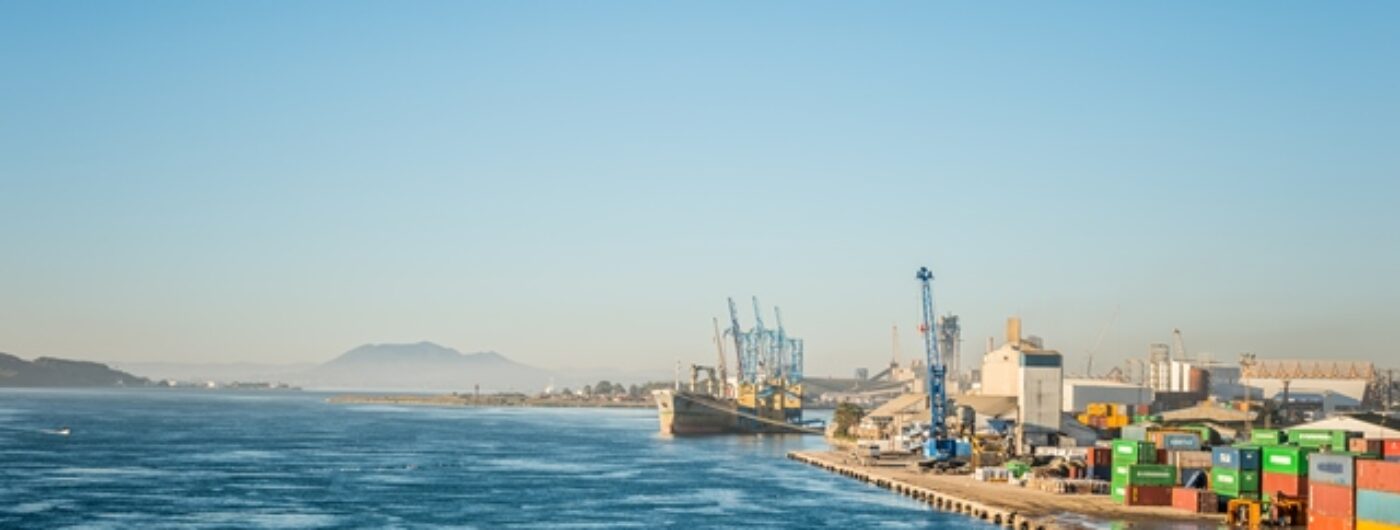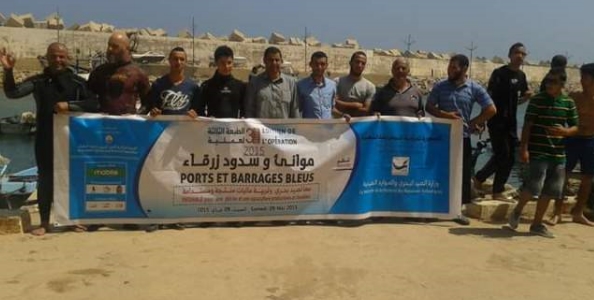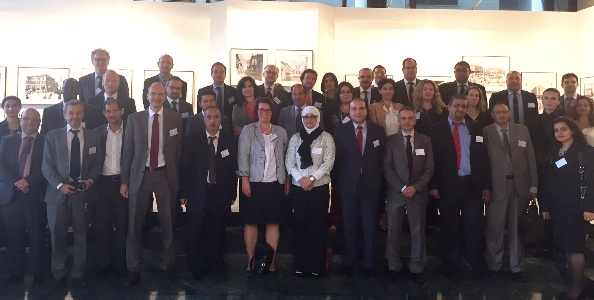
Towards a Roadmap for Blue Investment and Jobs in the Mediterranean
Barcelona, 28 May 2015. The challenges affecting the Mediterranean Sea call for shared and, above all, integrated responses and improved governance. This is particularly relevant when considering the ever-increasing demands for natural resources and pressures on the marine environment, as well as the continued need for sustainable growth and jobs in marine and maritime sectors and regions.
In order to gain insight and input from the wide variety of stakeholders involved in marine and maritime issues and processes, a UfM Stakeholders’ Conference was held on 27 May, back-to-back with the 2nd UfM Ad Hoc Senior Officials Meeting (SOM) on Blue Economy, which took place on 28 May in Athens in order to advance the preparations for the related Ministerial Meeting scheduled for late 2015.
The conference gathered around 150 policymakers, international organisations, private sector representatives, research centres and members of academia as well as civil society and financial institutions. It provided the opportunity to discuss and suggest proposals for specific actions on key priority topics of shared interest, as identified by the countries during the past years of common work and during the preparatory steps to the Ministerial Conference. Some of the topics discussed include:
- Partnerships for marine research and innovation in the Mediterranean – Discussing how to develop blue growth and jobs in the Mediterranean by fostering knowledge integration and by promoting joint actions for research and innovation including coordination, planning and programming of relevant research and innovation policies and instruments.
- Emerging knowledge-based business opportunities – Innovative information and communication technologies (data analytics, big data, cloud computing, mobile technologies) and open data have changed the IT landscape and are creating many opportunities. They are making it easier for the ICT community to leverage heterogeneous data sources to provide tailor-made solutions. These innovative technologies help policymakers and administrators in their decision-making and can stimulate investment and growth for businesses through the reduction of uncertainties and better predictability.
- Marine litter – Marine litter is a growing threat to the coastal and marine environment, posing significant risks to marine wildlife and ecosystems, human safety and livelihood. Marine litter mainly comes from land-based activities such as inappropriate household waste disposal, touristic and recreational activities, etc. but also more and more from fisheries-related activities. The Regional Plan on Marine Litter Management prepared under the Barcelona Convention provides the relevant policy framework. Information sharing coupled with coordinated and multisectorial actions are essential to tackling marine litter. Marine litter is also highlighted as an emerging priority under the UfM Declaration on Environment and Climate Change, adopted in May 2014.
The Algerian public authorities launched a two-week campaign involving the civil society to remove marine and beach litter.
- Maritime governance tools – Existing tools such as the sea basin strategies and maritime spatial planning can be key enabling tools for the sustainable coexistence of activities at sea: i.e. tourism, aquaculture, and marine protected areas. Building on existing experience, such as the EU Strategy for the Adriatic and Ionian Region and the ADRIPLAN project, panellists discussed pros and cons with regard to the Mediterranean Sea basin. Aquaculture and the interaction with other sectors at sea were also addressed.
- New technologies and skills for maritime transport, ocean energy and offshore wind – Green technologies have great potential for shipbuilding (NOx, SOx, CO2 abatement, ballast and waste water treatment), for smart and clean ports, and energy efficiency for ships (fuel plus energy management in general), including for fishing vessels and for the generation of energy offshore. These can be combined with the development of new skills needed in the maritime sector (sea jobs of the future).
- New tourism concepts for a sustainable Mediterranean – Best practice sharing and synergies development in new tourism products, including underwater cultural heritage and new cruise tourism routes, offer the opportunity to address key sustainability challenges and to enhance cooperation opportunities in coastal tourism.
The conference’s recommendations fed into the 28 May ad hoc SOM, which provided the opportunity to start shaping a joint declaration on the Blue Economy by the 43 UfM member states.
Ad-Hoc UfM Senior Officials Meeting
The conference was opened by Yannis Tsironis, Alternate Minister of Reconstruction of Production, Environment and Energy of Greece; Qais Qaqzeh, IMP-MED Project National Coordinator at the Ministry of Transport of Jordan; Mr Hubert Gambs, Director of the Mediterranean and Black Sea, Directorate-General for Maritime Affairs and Fisheries at the European Commission; and Naser Tahboub, UfM Deputy Secretary General for Environment and Water.



